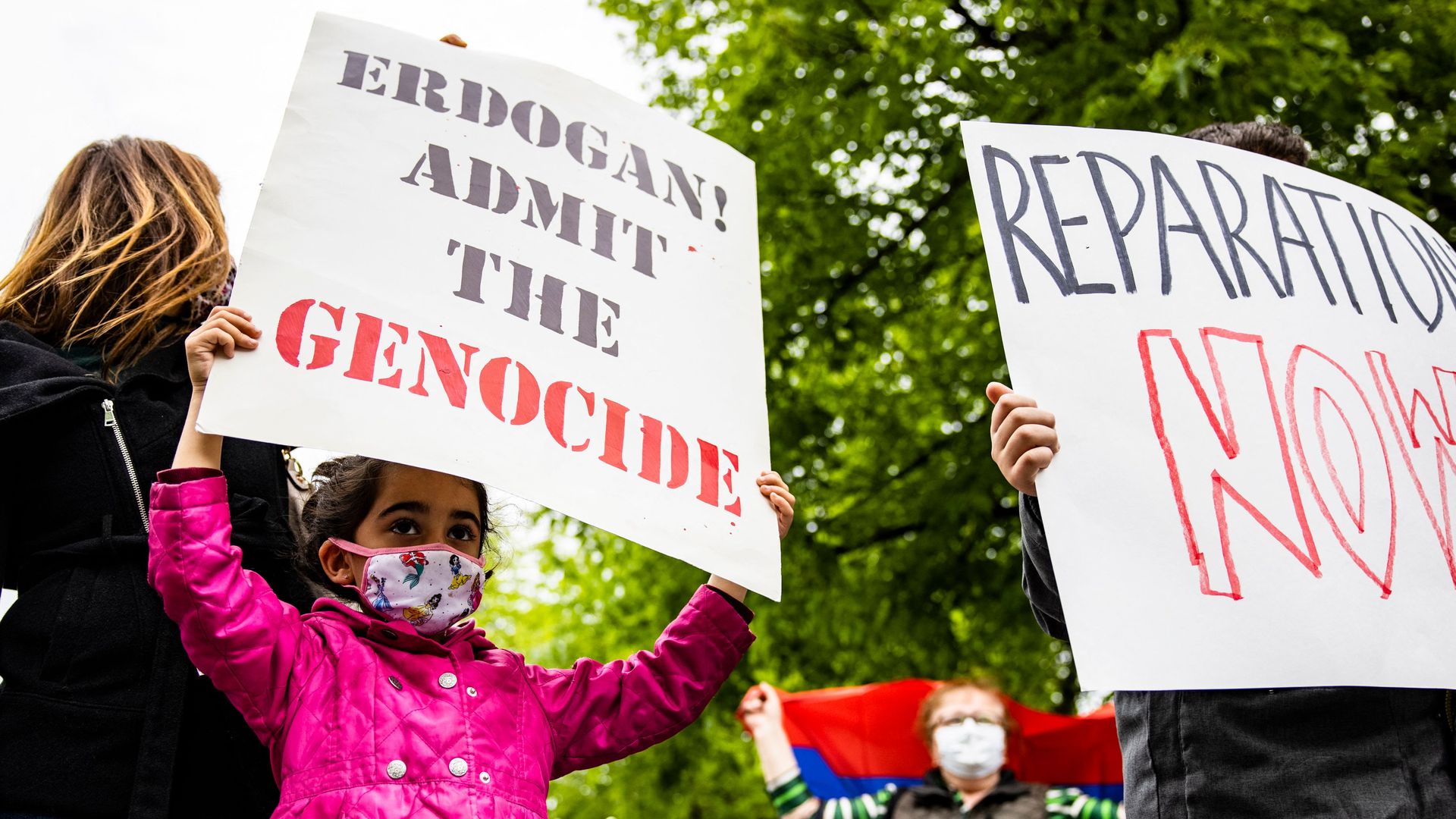Biden telegraphs tough moves with preemptive actions
Add Axios as your preferred source to
see more of our stories on Google.

A child protests World War I-era Armenian genocide outside the Turkish ambassador's residence in Washington on Saturday. Photo: Samuel Corum/AFP via Getty Images
President Biden has repeatedly telegraphed tough decisions with earlier announcements designed to cushion the blow.
Driving the news: On Friday, the White House announced a generic call with President Recep Tayyip Erdoğan of Turkey. Less than 24 hours later, the president issued a statement labeling a World War I Armenian massacre "genocide," angering the Turks.
- Several weeks ago, Biden released a slate of career foreign service officers he was nominating to be U.S. ambassadors.
- The president will soon announce a series of friends and donors to marquee diplomatic jobs, a traditional source of friction between political appointees and careerists at the State Department.
- On April 14, Biden also announced his new liaison to the Asian American Pacific Islander community just before he sat down with a group of AAPI lawmakers — including two who had demanded just such an appointment.
Why it matters: Good policy stems from good politics, and Biden prides himself on being a gentleman. But the two-step also reveals what bettors would call a presidential "tell."
- Biden previously telegraphed future headlines with calls to Saudi King Salman bin Abdulaziz al-Saud and Russian President Vladimir Putin, Axios' Hans Nichols notes.
- He called Salman on Feb. 25, a day before declassifying an intelligence report saying the king's son, Crown Prince Mohammed bin Salman, had approved an operation to "capture or kill" Washington Post journalist Jamal Khashoggi in 2018.
- Nichols scooped the president with news of the call.
- The president also called Putin two days before announcing sanctions against Russian officials for cyberattacks against the U.S. and its interests.
A brutal military campaign launched by the Ottoman Empire in April 1915 resulted in the deaths of 1.5 million people. The Turkish government has long resisted the label "genocide," saying the deaths were typical of warfare.
Two statements illustrated Biden's communications — and diplomatic — approach.
- At 2 p.m. Friday, as the workweek wound down, the White House announced his call with Erdoğan.
- The generic readout said the president conveyed "his interest in a constructive bilateral relationship with expanded areas of cooperation and effective management of disagreements."
- It also announced the two leaders would meet during a NATO summit in June "to discuss the full range of bilateral and regional issues."
At noon Saturday, the White House released a statement recognizing the anniversary in Armenia and branding the deaths genocide.
- "We do this not to cast blame but to ensure that what happened is never repeated," said the president's statement.
- The Turkish government responded by summoning the U.S. ambassador to Turkey, David Satterfield, for a meeting with its foreign minister in the capital of Ankara.
The bottom line: As with a presidential campaign, a schedule provides insight not just into current activities but future strategy.
